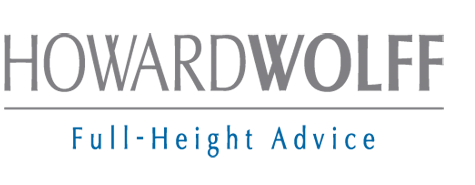
14 Jan Recommended Read
Firms of Endearment: How World-Class Companies Profit from Passion and Purpose
By Raj Sisodia, Jag Sheth, David. B.Wolfe
I confess: I bought this book because of its clever title, which sounded different from many of the marketing books that line my shelves. By page two, I learned that the original title was In Search of Marketing Excellence, which seemed much too mundane for a book that challenges the traditional marketing paradigm head-on.
Debunking old mindsets
The authors start by describing the zero-sum world view that now dominates business: stakeholders are adversaries to be subdued; suppliers are objects of exploitation; employees are expenses; governments are monkeys on the backs of business; consumers are prey for marketers and salespeople.
That mindset has lead to the conclusion that one stakeholder group can only benefit at the expense of others; and this is how capitalism has traditionally worked. Firms of Endearment (FoEs), however, place no stakeholder above any other. Where Darwin talked about the survival of the fittest, these authors claim that the fittest are those who know how to cooperate.
Winning business today is about becoming the ultimate value creator. And the types of value that the best companies are generating are those that matter: emotional, experiential, social and financial. Firms of Endearment seek to gain a “share of the heart,” not just a “share of the wallet” by aligning (not juggling) the interests of all of their stakeholders. So it’s not a question of who comes first: Customers? Investors? Employees? They all come first.
Before you choke on the smell of incense or start to hear the chant of Kumbaya, you might want to consider some of the firms who have made the transformation and whose financial performances are blowing away the S&P 500 averages and the “Good to Great” companies. The authors use dozens of case studies from across industries – from Costco and Whole Foods to Southwest, IDEO and IKEA and more – to make a compelling case for the competitive advantage of working with and for an endearing company.
The motive here is not political correctness or corporate social responsibility—it’s something much more palpable: long-term competitive advantage in everything from marketing to recruitment.
I’m lovin it
You’ll read the word “love” in this business book not once but repeatedly. Firms of Endearment are those companies that people love doing business with. Love partnering with. Love working for. Love investing in. In an organization that doesn’t separate human nature from corporate nature, love does not seem out of place.
How you can benefit from this book
It seems hard to argue with the success of the business models described in this engaging book. You might want to assess your company against the distinguishing traits of Firms of Endearment, which:
- Freely challenge industry dogma
- Reject traditional marketing methods
- Create value by aligning stakeholder interests
- Operate with a long-term perspective
- Favor organic growth to growing by mergers and acquisition
- Blend work and play
Paradoxically, these firms don’t focus on finances, but they are, indeed, highly profitable … despite spending more on employees and other stakeholders than most companies.
If you buy this book, I’d recommend that you get an extra for the boss. At its core, this is a book about developing and nourishing leadership and culture. No company can become an FoE without the CEO doubling as the CTO, Chief Transformational Officer.
The transition to becoming an FoE is more than a one-person job, and it’s also a lot deeper (and slower) than a silver-bullet program that starts and ends with rewriting your mission/vision/values statements. The authors voice what a lot of us already know: People do not rally around fake flags; cultural change has to be authentic.
While many of us may not expect to see our firms profiled in the next edition of this book, there is a lot that you and the other leaders in your firm can do today to start modeling the sound business strategies of the Firms of Endearment.


